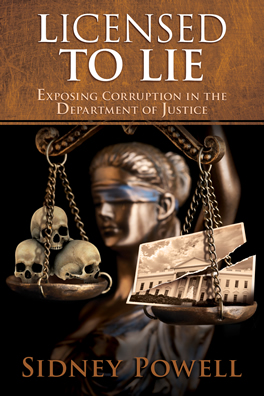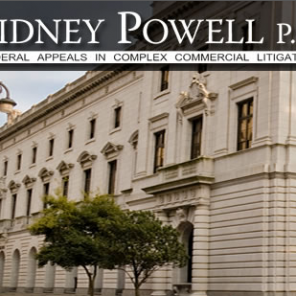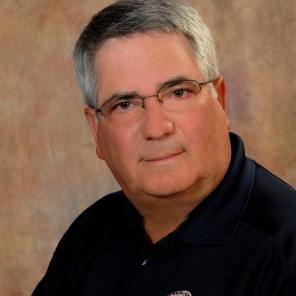Posted by
Torrence Lewis|Comments Off on One Small Step: Immunity Doctrines Do Not Shield All Rogue Prosecutors
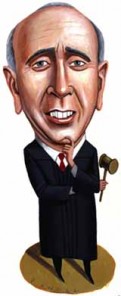 Boldly going where virtually no Federal Court of Appeals has ever gone before, a split panel of the Seventh Circuit in Fields v. Wharrie, in an opinion written by Judge Richard Posner, held this week that a prosecutor is not entitled to absolute immunity when his wrongful conduct is committed during the investigation of a case which results in a wrongful conviction. Here Lawrence Wharrie (an attorney still admitted to practice in Illinois and without any record of disciplinary history) fabricated [as distinct from coercing false testimony] evidence against a defendant [during the investigative stage]. Accordingly, Judges Posner and Joel Flaum held that the prosecutor is not entitled to “absolute prosecutorial immunity” nor to “qualified immunity” for the harm caused to the criminal defendant from that fabrication. Specifically, Wharrie coerced witnesses to give testimony that Wharrie and other Prosecutors (as well as the witnesses) knew to be false, resulting in Nathson Fields’ conviction of two murders and his imprisonment for 17 years until he was acquitted in a retrial. [Mr. Fields subsequently received a certificate of innocence from the court in which he had been tried]. Judge Diane Sykes dissented from the crucial holding.
Boldly going where virtually no Federal Court of Appeals has ever gone before, a split panel of the Seventh Circuit in Fields v. Wharrie, in an opinion written by Judge Richard Posner, held this week that a prosecutor is not entitled to absolute immunity when his wrongful conduct is committed during the investigation of a case which results in a wrongful conviction. Here Lawrence Wharrie (an attorney still admitted to practice in Illinois and without any record of disciplinary history) fabricated [as distinct from coercing false testimony] evidence against a defendant [during the investigative stage]. Accordingly, Judges Posner and Joel Flaum held that the prosecutor is not entitled to “absolute prosecutorial immunity” nor to “qualified immunity” for the harm caused to the criminal defendant from that fabrication. Specifically, Wharrie coerced witnesses to give testimony that Wharrie and other Prosecutors (as well as the witnesses) knew to be false, resulting in Nathson Fields’ conviction of two murders and his imprisonment for 17 years until he was acquitted in a retrial. [Mr. Fields subsequently received a certificate of innocence from the court in which he had been tried]. Judge Diane Sykes dissented from the crucial holding.
Read More »
Posted by
Sidney Powell|Comments Off on Digest of Favorite Brady or Prosecutorial Misconduct Cases from Federal Circuit Courts
 Click here for a digest of federal cases from the past 15 or so years in which the courts have reversed or dismissed cases for prosecutorial misconduct and/or Brady violations. Mr. Lewis has also included in the digest a number of additional federal cases in which courts recognized that dismissal in an appropriate remedy for egregious prosecutorial misconduct.
Click here for a digest of federal cases from the past 15 or so years in which the courts have reversed or dismissed cases for prosecutorial misconduct and/or Brady violations. Mr. Lewis has also included in the digest a number of additional federal cases in which courts recognized that dismissal in an appropriate remedy for egregious prosecutorial misconduct.
One of our favorites remains Kohring, in which Ninth Circuit Judges Thomas and Tashima reversed a conviction for Brady violations and rejected and reversed District Judge John Sedwick’s determination that the evidence was not “material” to the defense. Judge Betty Fletcher wrote separately because the prosecution’s “egregious violations of [its] basic responsibilities” and “unrepentant attitude indicates that no lesser remedial action would be effective.”
There is also a significant collection of Brady cases in Ninth Circuit Chief Judge Kozinski’s potent dissent from the denial of rehearing in Olsen, about which we have blogged here, here and here as the Los Angeles Times, The New York Times, and the Washington Post picked it up.
Posted by
Sidney Powell|Comments Off on Andrew Weissmann Quietly Slipped from FBI to NYU
 Former Enron Task Force Director-turned General Counsel to the FBI-quietly left the FBI in October 2013. Remarkably, he has gone to teach at NYU.
Former Enron Task Force Director-turned General Counsel to the FBI-quietly left the FBI in October 2013. Remarkably, he has gone to teach at NYU.
We should all be concerned about what Weissmann might “teach” his students.
The NY Bar swept an ethical grievance aside-actually punting it to the Department of Justice to decide-even though the Department was defending Weissmann on those charges.
Prosecutorial misconduct infected every case with which he was involved while on the Enron Task Force. First, he and DOJ Criminal Division Nominee Leslie Caldwell annihilated Arthur Andersen, destroying 85,000 jobs, only to be reversed by the Supreme Court 9-0 because Andersen’s conduct wasn’t criminal. Then Weissmann oversaw the Merrill Lynch prosecution where his Task Force cronies including now White House Counsel Kathryn Ruemmler “plainly suppressed” evidence that was favorable to the defense while four innocent men went to prison. Weissmann resigned from the Task Force amid serious allegations of prosecutorial misconduct by the Enron Broadband trial prosecutors.
Now he’s teaching law students? ? ? At least we can all be grateful that he is not directing the investigations, evidentiary decisions,email collection, and prosecution plans for the FBI any longer-or helping collect and handle NSA’s massive data on each of us.
Posted by
Sidney Powell|Comments Off on Washington Post is Singing Our Song: Stop Prosecutorial Misconduct
The Washington Post, in an opinion piece by Radley Balko, has now joined the Los Angeles Times and the New York times in calling for a national discussion on the problem of prosecutorial misconduct. It has infected our legal system nationwide, and the Department of Justice, the judges, and our bar associations have done little if anything about it. It must stop. It is destroying the public’s faith in our system, the rule of law itself, and any possibility of the fair administration of justice, while causing untold harm to countless individual lives.
On Sunday, the New York Times ran an editorial about prosecutorial misconduct. The paper called the problem “rampant,” particularly with respect to what are known as “Brady violations,” or the requirement to disclose favorable evidence to defense counsel. The editorial came on the heels of a well-publicized, blistering opinion by Alex Kozinski, the chief judge of the United States Court of Appeals for the Ninth Circuit, that not only excoriated prosecutors in a case the court was considering, but went on to lambaste prosecutors across the country, and the courts and bar associations that fail to hold them accountable. We appear to now be headed for an overdue, full-blown “national discussion.”
Bring on the discussion and let’s name names, but the most recent Kozinski opinion on the “epidemic of Brady violations” is found here. Stay tuned and follow us on Facebook where we’ve posted a Judicial Wall of Fame, a Prosecutors’ Wall of Shame, and a Judicial Wall of Shame. Some of the most corrupt prosecutors are now running the country.
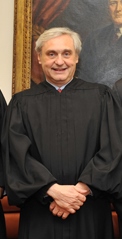 Entitled RAMPANT PROSECUTORIAL MISCONDUCT, the New York Times Editorial today joins the Los Angeles Times and cites Ninth Circuit Chief Judge Alex Kozinski’s recent dissent from the denial of rehearing en banc in the Olsen case, where many judges (but not enough) saw a significant violation of the defendant’s constitutional rights when the prosecutor failed to provide evidence that would have seriously impeached a crucial witness. Kudos to the Times for recognizing the problem and speaking out.
Entitled RAMPANT PROSECUTORIAL MISCONDUCT, the New York Times Editorial today joins the Los Angeles Times and cites Ninth Circuit Chief Judge Alex Kozinski’s recent dissent from the denial of rehearing en banc in the Olsen case, where many judges (but not enough) saw a significant violation of the defendant’s constitutional rights when the prosecutor failed to provide evidence that would have seriously impeached a crucial witness. Kudos to the Times for recognizing the problem and speaking out.
Brady violations undermine our system of justice and jeopardize the freedom of each of us. A prosecutor’s job is to seek justice-not obtain convictions, but far too many have lost their moral compass. One need only look at the legacy of injustice of the Enron Task Force prosecutors and the prosecutors of Ted Stevens and others in Alaska to see the ravages of the win-at-any-cost mentality that has infected our Department of INjustice-especially in high profile prosecutions.
The comments to the NYT Editorial so far are particularly telling. Yes, there are ethical rules that are supposed to apply to prosecutors, but the various bar associations are not enforcing them. To make matters worse, the Department of INjustice demands the right to filter all production of evidence favorable to the defense through the prosecutor’s lens of materiality and are advocating for the imposition of a materiality requirement in the bar rules nationwide. That means the prosecutor really doesn’t have to produce anything, and unless a defendant is lucky enough to have a judge like Emmet Sullivan or a handful of other district judges who compel the government to produce everything, the prosecutors are licensed to lie and convict on whatever their own view of their case is. The truth can be suppressed for years-if not forever-while innocent people languish in prison or are executed on death row.
On top of that, our Department of INjustice also opposes legislation proposed in a bi-partisan effort two years ago that would codify the rule of Brady and give it some teeth. Called the Fairness in Disclosure of Evidence Act, the legislation received wide support from almost every legal organization but one-the Department. That is sad and unacceptable. We’ve got to do better. Wrongful convictions destroy countless lives. There is no reason that an open file policy could not be standard operating procedure except in cases of national security or clear danger to witnesses. Those situations are comparatively rare. And the Fairness in Disclosure of Evidence Act should be enacted immediately.
Posted by
Sidney Powell|Comments Off on WALL OF SHAME for Brady Violators
We have created a WALL OF SHAME on which we will post pictures of prosecutors who violate Brady and judges who fail to take action in the face of those violations.
Alaska United States District Judge John W. Sedwick (pictured left) has just been added to our Judicial Wall of Shame for his failure to grant a new trial in the Operation Polar Pen Prosecutions in US v Kott and US v Kohring that were corrupted by the same prosecutors who also corrupted the prosecution of Alaska’s United States Senator Ted Stevens.
Fortunately, the Ninth Circuit panel of Judges Thomas, Tashima and Fletcher reversed Judge Sedwick’s decision in a scathing opinion. Ninth Circuit Judge Betty Fletcher was added to our Wall of Fame for her concurrence, in which she excoriated the prosecutors for their “reckless disregard” of the rights of the defendant. She would have dismissed the indictment because the prosecutors’ “unrepentant attitude indicates that no lesser remedial action will be effective.” Judge Fletcher wrote that only the extreme remedy of dismissal was sufficient to “impress upon the government Read More »
Posted by
Sidney Powell|Comments Off on Resource for Brady Cases! A Handy Digest
In our effort to make this blog a valuable resource for practitioners and others in search of cases and materials on Brady violations and prosecutorial misconduct, Torrence Lewis has prepared a DIGEST OF SUPREME COURT BRADY AND MISCONDUCT CASES decisions that we hope you will find helpful.
As with any resource we provide, we are not giving anyone legal advice, creating an attorney-client relationship, or engaging in legal representation. You should always consult your own attorney.
 Boldly going where virtually no Federal Court of Appeals has ever gone before, a split panel of the Seventh Circuit in Fields v. Wharrie, in an opinion written by Judge Richard Posner, held this week that a prosecutor is not entitled to absolute immunity when his wrongful conduct is committed during the investigation of a case which results in a wrongful conviction. Here Lawrence Wharrie (an attorney still admitted to practice in Illinois and without any record of disciplinary history) fabricated [as distinct from coercing false testimony] evidence against a defendant [during the investigative stage]. Accordingly, Judges Posner and Joel Flaum held that the prosecutor is not entitled to “absolute prosecutorial immunity” nor to “qualified immunity” for the harm caused to the criminal defendant from that fabrication. Specifically, Wharrie coerced witnesses to give testimony that Wharrie and other Prosecutors (as well as the witnesses) knew to be false, resulting in Nathson Fields’ conviction of two murders and his imprisonment for 17 years until he was acquitted in a retrial. [Mr. Fields subsequently received a certificate of innocence from the court in which he had been tried]. Judge Diane Sykes dissented from the crucial holding.
Boldly going where virtually no Federal Court of Appeals has ever gone before, a split panel of the Seventh Circuit in Fields v. Wharrie, in an opinion written by Judge Richard Posner, held this week that a prosecutor is not entitled to absolute immunity when his wrongful conduct is committed during the investigation of a case which results in a wrongful conviction. Here Lawrence Wharrie (an attorney still admitted to practice in Illinois and without any record of disciplinary history) fabricated [as distinct from coercing false testimony] evidence against a defendant [during the investigative stage]. Accordingly, Judges Posner and Joel Flaum held that the prosecutor is not entitled to “absolute prosecutorial immunity” nor to “qualified immunity” for the harm caused to the criminal defendant from that fabrication. Specifically, Wharrie coerced witnesses to give testimony that Wharrie and other Prosecutors (as well as the witnesses) knew to be false, resulting in Nathson Fields’ conviction of two murders and his imprisonment for 17 years until he was acquitted in a retrial. [Mr. Fields subsequently received a certificate of innocence from the court in which he had been tried]. Judge Diane Sykes dissented from the crucial holding.




